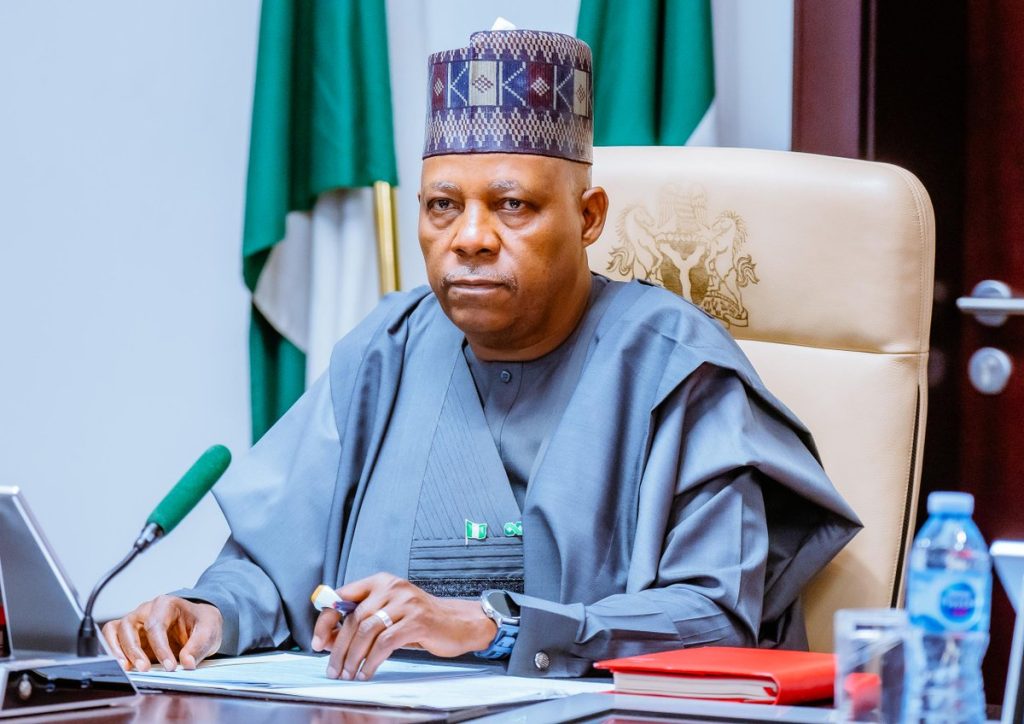Vice President Kashim Shettima has opened up about the intense political pressure and personal attacks he faced during the final years of former President Goodluck Jonathan’s administration, revealing that he was widely regarded as the most criticised and demonised public figure in that period.
Speaking on Thursday at the public unveiling of the book OPL 245: Inside Story of the $1.3bn Nigeria Oil Block, authored by former Attorney General of the Federation Mohammed Adoke, Shettima recounted his experiences while serving as governor of Borno State under a challenging political climate.
“In the last four years of former President Goodluck Jonathan’s administration, I was the most demonised person; I was the public enemy number one,” Shettima said, reflecting on the hostile environment he endured. His comments came during an event in Abuja that attracted top political figures and stakeholders.
Shettima explained that his political difficulties extended to the highest levels of government. He disclosed that within exclusive circles of power comprising the President, Vice President, Senate President, and Speaker of the House of Representatives discussions were held about his possible removal as governor.
“There are two gentlemen seated here. Certain decisions are taken in a very rare peace circle. The President, the Vice President, the Senate President and the Speaker of the House of Representatives,” Shettima said, referring to the high-level meetings where his fate was debated.
READ ALSO: Shettima urges public officials to document stewardship, calls for transparency in governance
He revealed that former President Jonathan had even entertained the idea of removing him from office, a move that would have required significant political and legal manoeuvring.
“In one of such conclaves, former President Goodluck Jonathan, with whom we have sheathed the sword and have now recalibrated our relationship, was muting the idea of removing this Borno governor,” he disclosed.
However, Shettima praised Aminu Tambuwal, then Speaker of the House of Representatives, for standing firm against the proposal. Tambuwal reportedly told the President, “Your Excellency, you don’t have the powers to remove an elected councillor,” underscoring the constitutional limits on such actions.
Despite Jonathan’s initial push, the proposal to remove Shettima was ultimately shelved at the Federal Executive Council meeting, allowing Shettima to continue his tenure as governor until the end of his term.
The Vice President’s candid admission sheds light on the often intense political rivalries and power struggles within Nigeria’s ruling class, particularly during periods of national tension. It also highlights the resilience required to navigate Nigeria’s complex political landscape.
Since those difficult years, Shettima said he and former President Jonathan have reconciled and recalibrated their relationship, moving beyond past animosities.
The book launch, focusing on the controversial OPL 245 oil block saga, was a significant occasion that brought together key figures in Nigeria’s political and legal spheres, including the former Attorney General Mohammed Adoke, who authored the insider account of the $1.3 billion oil deal.



